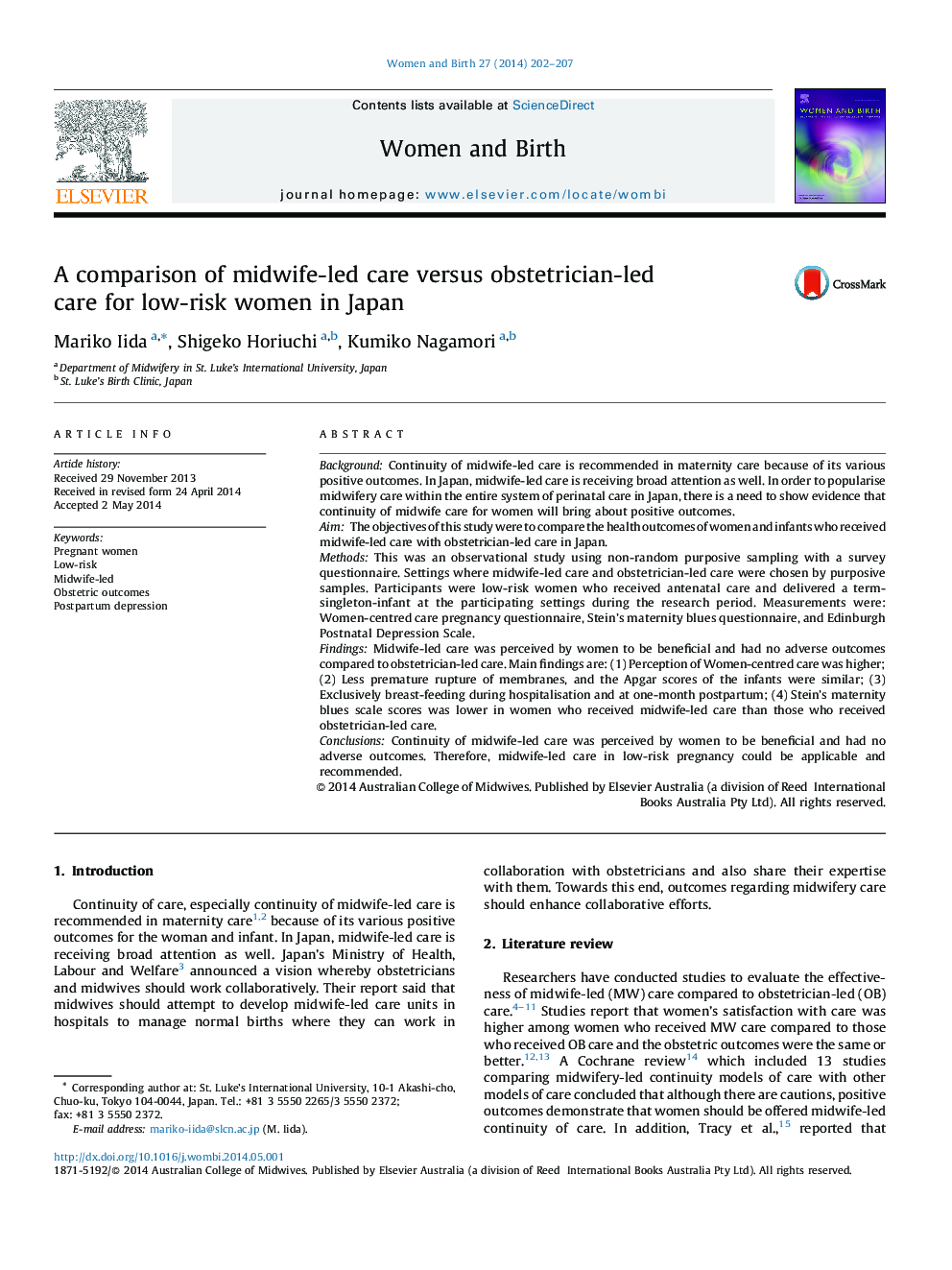| Article ID | Journal | Published Year | Pages | File Type |
|---|---|---|---|---|
| 2635961 | Women and Birth | 2014 | 6 Pages |
BackgroundContinuity of midwife-led care is recommended in maternity care because of its various positive outcomes. In Japan, midwife-led care is receiving broad attention as well. In order to popularise midwifery care within the entire system of perinatal care in Japan, there is a need to show evidence that continuity of midwife care for women will bring about positive outcomes.AimThe objectives of this study were to compare the health outcomes of women and infants who received midwife-led care with obstetrician-led care in Japan.MethodsThis was an observational study using non-random purposive sampling with a survey questionnaire. Settings where midwife-led care and obstetrician-led care were chosen by purposive samples. Participants were low-risk women who received antenatal care and delivered a term-singleton-infant at the participating settings during the research period. Measurements were: Women-centred care pregnancy questionnaire, Stein's maternity blues questionnaire, and Edinburgh Postnatal Depression Scale.FindingsMidwife-led care was perceived by women to be beneficial and had no adverse outcomes compared to obstetrician-led care. Main findings are: (1) Perception of Women-centred care was higher; (2) Less premature rupture of membranes, and the Apgar scores of the infants were similar; (3) Exclusively breast-feeding during hospitalisation and at one-month postpartum; (4) Stein's maternity blues scale scores was lower in women who received midwife-led care than those who received obstetrician-led care.ConclusionsContinuity of midwife-led care was perceived by women to be beneficial and had no adverse outcomes. Therefore, midwife-led care in low-risk pregnancy could be applicable and recommended.
